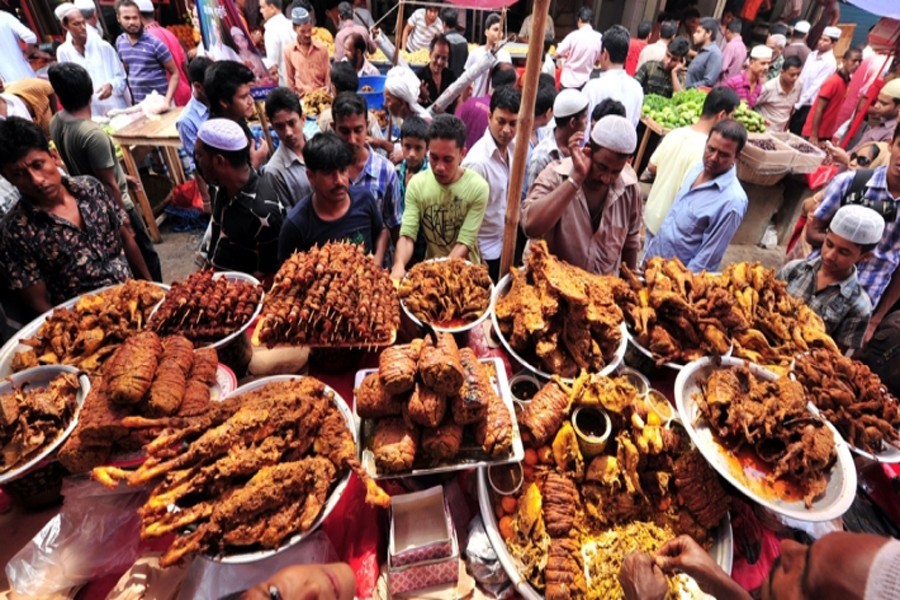
Published :
Updated :

The holy month of Ramadan is a month of observance of prayer and sacrifice. The Muslims are expected to offer additional prayer at night times after fasting from dawn to dusk. The congregation in the masques become bigger compared to other months, which also provides an opportunity to understand the spirit of the holy month in a more pronounced way. Ramadan is meant to inspire in Muslims the feeling of caring, sharing and giving. It is also meant for organising inner discipline in people.
Unfortunately, a large number of Muslims in the country pay little attention to the fundamental spirit of Ramadan; rather go for profligacy. They are more focused on rituals of prayer and festivity of two square meals - iftar and suhur. While there is no restriction to enjoying good food during iftar, the evening meal to break the fast, or even suhur, the pre-dawn meal before the start of the fast, any kind of extravagance goes against the spirit of Ramadan.
The extravagance during the iftar is reflected in preparing various food items. Women in many homes have to spend a major portion of the daytime doing so although it is easily possible to keep the meal simple and healthy. Instead of paying attention to prayer and practising restraint in line with the spirit of the holy month, women in many families are compelled to spend their valuable time delivering mouth-watering gastronomic items during the iftar time. Then comes the purchase of various foodstuffs from different restaurants and food shops. From regular to makeshift food shops and eateries, all compete to display and vend assorted foods. The rush to purchase these foods indicates a lack of moderation among some people during the holy month. It also attests to the rising disparity in income in the society as many poor and low-income people at the same time struggle to find some cheap and non-descript iftar.
The explosion of unhealthy and junk foods during Ramadan is another unwelcome thing. Road-side food vendors care little about maintaining hygiene as they sell iftar items under the open sky. These items are exposed to dust and germ. People are also purchasing from these vendors without any qualms. The practice of wearing face masks during the Covid period has almost vanished and regular washing or sanitising of hands is nowhere. It seems that vaccination has negated the necessity of basic cleanliness.
If selling iftar in an open space is hazardous for health, the preparation of these foods without maintaining minimum hygiene along with using noxious ingredients makes the foods sources of various diseases. All these go against the spirit of Ramadan which also calls for following proper cleanliness in every work and avoiding all forms of adulteration. By not doing so, people are undermining the inherent essence of the day-long fast.
Again, in many cases, parties arranged in the name of iftar lead to wastage of food which is also not acceptable. Food wastage levels sometimes increase due to cooking in excess at home and overordering from eateries. There is a sad trend of preparing and purchasing more foods than required . Though some people later try to distribute the leftovers to poor people, this kind of generosity is not welcome. Ramadan teaches all to curtail excess and give to the needy, not the leftovers that originate from undue extravagance.
asjadulk@gmail.com


 For all latest news, follow The Financial Express Google News channel.
For all latest news, follow The Financial Express Google News channel.